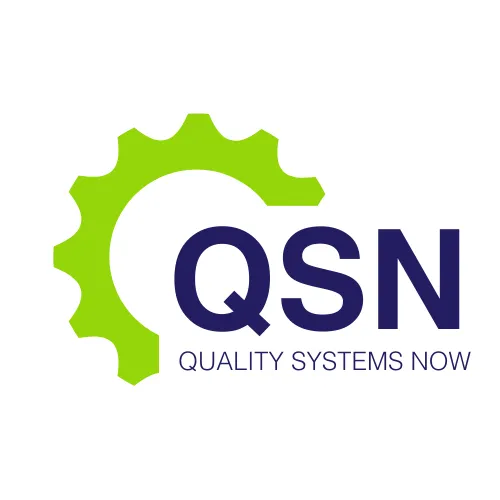LATEST NEWS

From Quality Culture to Business Success
In industries such as pharmaceuticals, biotechnology, and medical device manufacturing, the concept of “quality” extends far beyond documentation and compliance checklists. It becomes an organisational ethos — a way of thinking and working that shapes every decision, every process, and every product. This integrated mindset is what we refer to as a quality culture.
When properly established, a strong quality culture does more than prevent regulatory noncompliance; it drives business success. From reduced operational risk to improved efficiency, greater market access, and enhanced reputation, the strategic advantages are significant. For companies operating within the therapeutic goods sector — particularly in Australia’s highly regulated environment — embedding quality into the core of business practices can be a decisive factor in achieving sustainable growth.
This article explores the concept of quality culture, its essential elements, and how it leads directly to business success. We also offer actionable strategies for fostering quality culture across all levels of your organisation, with particular attention to regulatory expectations and the Australian context.
Understanding Quality Culture
A quality culture is not simply a collection of policies or standard operating procedures. It is a shared commitment, from leadership through to frontline staff, to prioritise quality in every action. This means doing the right thing, even when it is not the easiest or cheapest option. It encompasses decision-making, communication, process ownership, and continuous improvement.
The Pharmaceutical Inspection Co-operation Scheme (PIC/S) and other regulatory frameworks emphasise the importance of quality culture as part of a company’s Pharmaceutical Quality System (PQS). The expectation is that quality is not an afterthought, but rather integrated into strategic planning and everyday operations.
Key attributes of a strong quality culture include:
Leadership commitment to quality values
Employee empowerment and accountability
Open and transparent communication
Continuous training and development
Timely detection and response to deviations
A non-punitive approach to error reporting
These elements not only contribute to regulatory compliance but also provide a foundation for operational excellence.
Regulatory Support for Quality Culture
Regulators worldwide — including Australia’s Therapeutic Goods Administration (TGA), the U.S. Food and Drug Administration (FDA), and the European Medicines Agency (EMA) — have increasingly called for the establishment of mature quality systems underpinned by culture. The TGA’s interpretation of GMP, as set out in the Australian Code of Good Manufacturing Practice for Medicinal Products, emphasises a proactive approach to quality management and organisational accountability.
The FDA has introduced initiatives such as the Quality Management Maturity (QMM) program to assess cultural readiness and reward companies that exceed baseline GMP expectations. Similarly, the ICH Q10 guideline on Pharmaceutical Quality Systems identifies “management responsibility” and “continual improvement” as foundational to a robust system.
Therefore, cultivating a strong quality culture is not only good practice — it is increasingly essential to meet regulatory expectations and achieve favourable inspection outcomes.
How Quality Culture Leads to Business Success
1. Improved Regulatory Compliance
Organisations with a mature quality culture are better prepared for audits and inspections. They maintain accurate records, address deviations promptly, and demonstrate clear ownership of processes. This reduces the likelihood of observations, warning letters, or licence suspension. In a sector where noncompliance can halt operations and tarnish reputation, quality culture becomes a form of risk mitigation.
2. Enhanced Operational Efficiency
Quality culture encourages employees to identify inefficiencies, suggest process improvements, and embrace best practices. As a result, organisations experience fewer errors, less rework, and lower batch failure rates. This leads to better use of resources, more predictable timelines, and lower cost of goods.
3. Stronger Market Access and Partner Confidence
Certifications such as ISO 13485:2016, GMP licences, or MDSAP participation are essential for global market access. A strong quality culture supports the implementation and maintenance of these systems. Moreover, customers, distributors, and partners are more likely to engage with organisations that demonstrate consistent quality, ethical standards, and regulatory credibility.
4. Greater Innovation and Adaptability
A company that values learning, openness, and continuous improvement is more agile in responding to market changes, technological advances, and regulatory updates. Quality culture enables innovation without sacrificing compliance. It provides a safe environment for experimenting with new ideas, provided they are validated, documented, and controlled.
5. Increased Employee Engagement and Retention
Employees in quality-driven organisations feel their work has meaning and impact. They are trained, trusted, and encouraged to take responsibility. This improves job satisfaction and reduces staff turnover — both of which are particularly valuable in industries where technical expertise is hard to replace.
Building a Quality Culture: Practical Strategies
Leadership as Role Models
Culture starts at the top. Leaders must not only communicate the importance of quality but also model it in their actions. This includes prioritising quality metrics in business decisions, actively participating in quality reviews, and holding themselves accountable for outcomes.
Training Beyond Compliance
Routine training in GMP or ISO requirements is essential, but insufficient on its own. Cultural transformation requires deeper education around why quality matters — how it protects patients, sustains the business, and creates value. Quality awareness should be embedded in onboarding, team meetings, and performance appraisals.
Empowering Staff and Encouraging Reporting
Staff at all levels must be encouraged to raise concerns, report deviations, and suggest improvements without fear of blame. Establishing systems for anonymous reporting, conducting regular root cause analyses, and following up with visible actions all contribute to a positive reporting culture.
Integrating Quality into Strategy
Quality should not be siloed into a single department. It must be a consideration in supply chain decisions, marketing claims, R&D initiatives, and IT systems. Incorporate quality objectives into KPIs, align them with business goals, and regularly measure progress.
Partnering with Specialists
Organisations that partner with quality and regulatory experts, such as Quality Systems Now, can benefit from experienced guidance in designing and sustaining quality systems that support cultural maturity. Whether implementing ISO 13485:2016, preparing for GMP audits, or improving internal processes, such support ensures initiatives are aligned with both compliance requirements and long-term business goals.
Measuring Quality Culture
While culture is intangible, its impact can be observed and measured. Metrics that may reflect cultural maturity include:
Number and quality of deviations reported
Timeliness and effectiveness of CAPAs
Staff participation in improvement initiatives
Frequency of near-miss reporting
Audit outcomes and repeat findings
Regular employee surveys, management reviews, and internal audits can also provide insights into cultural strengths and areas for growth.
Let's Talk About Quality Culture
In today’s highly regulated and competitive life sciences landscape, quality culture is not optional — it is fundamental. It ensures regulatory compliance, reduces risk, improves operations, and builds a resilient workforce. More importantly, it forms the bedrock upon which sustainable business success is built.
Organisations that treat quality as a strategic asset rather than a compliance burden are better positioned to navigate change, meet stakeholder expectations, and innovate with confidence. By investing in people, systems, and leadership behaviours that support quality culture, businesses can transform from reactive to proactive — from compliant to exceptional.
For companies seeking to strengthen their quality systems and embed culture as a competitive advantage, Quality Systems Now offers tailored support to align regulatory compliance with operational excellence.
